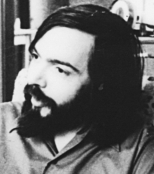A Quote by David Brooks
The roots of great innovation are never just in the technology itself. They are always in the wider historical context. They require new ways of seeing. As Einstein put it, 'The significant problems we face cannot be solved at the same level of thinking we were at when we created them.'
Related Quotes
In The 3rd Alternative, Stephen Covey urges us to chart a course beyond the suboptimal solutions to all our crises - beyond left and right, and beyond the many false choices in front of us. The 3rdAlternative is a wise and welcome echo of Einstein's warning that the problems we're facing today cannot be solved by the same level of thinking that created them.
The intuitive mind is a sacred gift and the rational mind is a faithful servant. We have created a society that honors the servant and has forgotten the gift. We will not solve the problems of the world from the same level of thinking we were at when we created them. More than anything else, this new century demands new thinking: We must change our materially based analyses of the world around us to include broader, more multidimensional perspectives.
The greatest and most important problems of life are all in a certain sense insoluble. They can never be solved, but only outgrown. This 'outgrowing', as I formerly called it, on further experience was seen to consist in a new level of consciousness. Some higher or wider interest arose on the person's horizon, and through this widening of view, the insoluble problem lost its urgency. It was not solved logically in its own terms, but faded out when confronted with a new and stronger life-tendency.
There are two sure ways to fail: never get started and quit before you succeed. Many companies promote the language of risk-taking and innovation but are so concerned with short term profit goals that their culture discourages innovation (trying new things) and abandons promising projects too soon. It shouldn't require exceptional moral courage to try new things and stick with them.


























